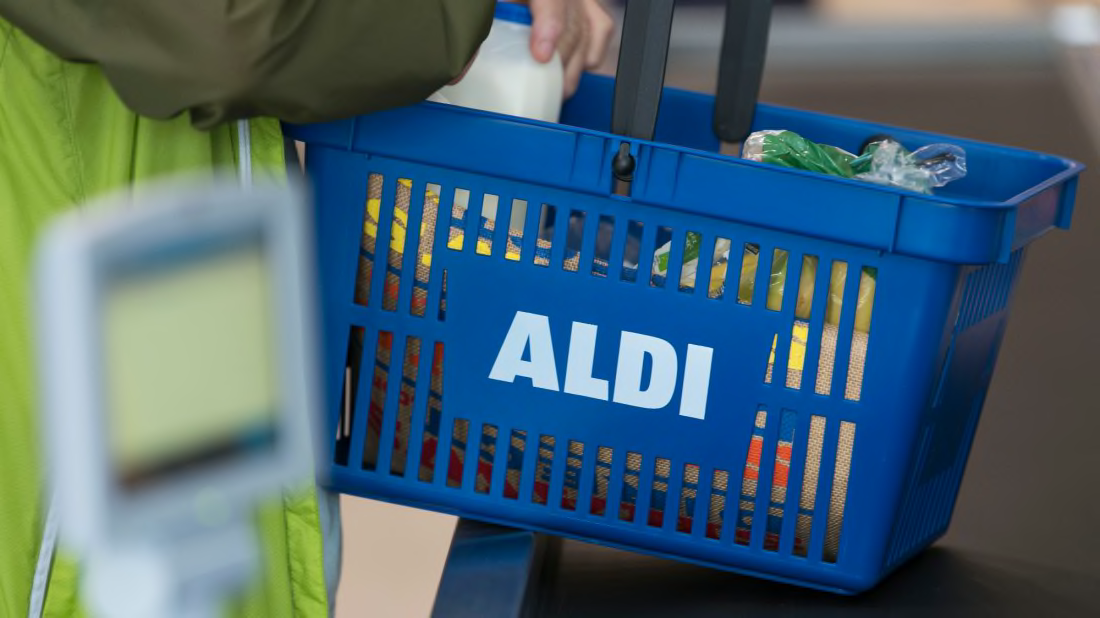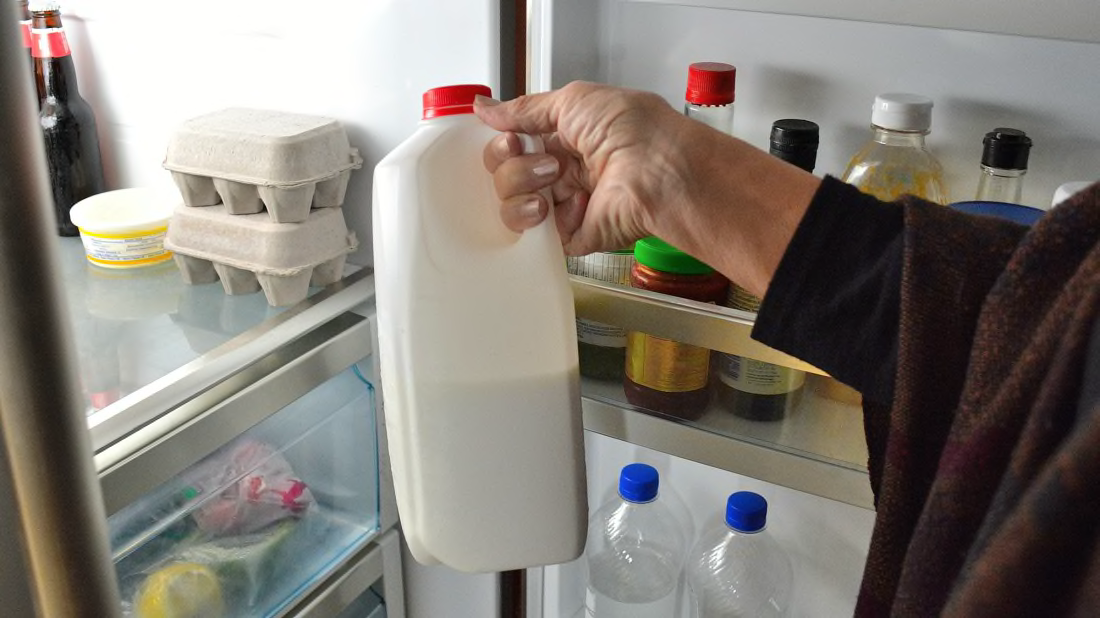
Do you look forward to pumping gas? Do you enjoy the pungent odor of fuel as it wafts up from gas stations and seeps into your hands? Does the cocktail of hydrocarbons, antifreeze, and hundreds of other chemical compounds make you volunteer to jump out of a car in the dead of winter for a chance to pump-and-sniff?
Inhaling gas fumes is, of course, not recommended by anyone. But some people do seem to enjoy taking a whiff when the opportunity presents itself. And according to science, it may be less about getting a cheap buzz and more about nostalgia.
In a piece for Discover, Carl Engelking points out that gasoline gets its distinctive smell from benzene, a compound that increases octane levels and improves fuel efficiency. Benzene is easy to detect with our nose even when present in small amounts. And there’s precedent for finding the odor pleasant. In the 1800s, Engelking writes, benzene was an ingredient in aftershaves and feminine hygiene products.
But that’s a bit too far in the rearview to have modern relevance. The benzene aficionados of today are probably catching a sniff because scent and memory are closely related. Some call it the Proust phenomenon, named after author Marcel Proust, who once described the smell of a biscuit dipped in tea as evoking childhood memories. The olfactory bulb, or the nerves that detect scent molecules, are closely tied in with the brain's amygdala (which processes emotional response) and hippocampus (which handles memory formation). Put simply, scents make us react on an emotional level.
That’s likely why gasoline triggers a pleasant response. Thanks to driving around with parents, being taught to mow a lawn, or anything involving a motorized childhood memory, we associate the smell with a simpler time.
And unlike other smells—baking cookies, for example—benzene actually has a suppressing effect on the nervous system. So one is, in a mild way, getting a bit of a high from it. In filling up at the pump, you’re not only reminding yourself of your childhood. You’re also getting a slight buzz.
A quick nostalgia hit in the course of fueling a vehicle is not likely to create any health issues, but you should be aware that regularly indulging in solvent inhalation can lead to unpleasantness like balance problems, dementia, and tubular necrosis. So try not to regress into your childhood too much.
[h/t Discover]

Economy grocery chain ALDI has developed a loyal following in recent years for perfecting a no-frills shopping experience. With no name-brand products and plenty of expense spared on elaborate displays, it’s become a model of efficiency.
There’s another way ALDI differs from other retail locations, though it’s not something you may have even noticed. None of the chain’s 1600 stores play music over their store speakers. The reason is simple: It’s another way for ALDI to lower their bottom line.
Speaking with Reader’s Digest, John Stranger, the vice president group supervisor of creative agency EvansHardy+Young, said ALDI can save money by avoiding the licensing payments that would be owed for playing music inside stores. Typically, retail outlets partner with a third-party music service to provide soothing tunes that make for a pleasant shopping experience and encourage shoppers to linger.
Music is part of an overall retail psychology approach that includes deliberate store layouts, sales, and other ways stores try to subtly manipulate consumer behavior. ALDI apparently prefers to rely on low prices as the main driver behind business.
Music is one of several seemingly minor details that ALDI carefully weighs. The stores also have an unlisted phone number to prevent employees from spending any time fielding calls the chain has deemed unnecessary.
It’s working. ALDI brings in $80 billion in revenue annually and is aiming to be America’s third-largest grocery chain by 2022, behind only Walmart and Kroger.
[h/t Reader's Digest]

Nothing goes better with cookies or cereal than a cold glass of milk. (Or almond milk, if that’s your preference.) Few people in the United States pull cartons of milk from their cupboard. Milk is sold and stored cold, but America is a bit of an outlier in that regard. So what gives? Why do we buy milk chilled while Europe and other parts of the world stock and store it outside the refrigerator?
It comes down to different pasteurization methods. In the U.S. and Canada, milk manufacturers make use of high-temperature short-time pasteurization, or HTST. Able to kill bacteria in large batches, HTST is efficient but results in milk that expires relatively quickly—about seven to 10 days after opening. That’s because the temperature used (about 161°F for 15 seconds) is enough to kill most bacteria, but some will proliferate if the milk hangs around long enough.
In Europe and other parts of the world, another technique called ultra-heat-treated pasteurization, or UHT, is used. Milk is exposed to higher temperatures of 284°F for three seconds, decimating virtually all the bacteria and making it shelf-stable for about six months if left unopened. (Once opened, it has to be refrigerated.) Because it’s “cooked” at high heat and burns off some of the sugar, UHT milk also has a slightly different flavor.
Pasteurization is named after Louis Pasteur, a French scientist in the 1860s who realized heating beer could kill bacteria. Decades later, German agricultural chemist Franz von Soxhlet applied the principle of high heat to milk, since dairy products had a nasty habit of harboring contaminants that could cause diphtheria or tuberculosis. HTST and UHT methods followed, and Europe picked up on the promise of UHT producing milk that wouldn’t spoil quickly.
Even though companies have tried getting Americans to warm to shelf-stable milk—the Parmalat company tried a marketing campaign with Luciano Pavarotti in the early 1990s—it may simply be too late. The idea of purchasing milk in the middle of a grocery store, unrefrigerated, is something that doesn't fit with U.S. food storage habits. While UHT milk is still sold in the U.S., it’s primarily for portable cartons thrown in lunchboxes or for people who want to have milk on hand in a backpack. For most Americans, however, cold milk is the only milk worth considering.
[h/t Reader’s Digest]
"smell" - Google News
May 01, 2020 at 03:00AM
https://ift.tt/2yivexB
There's a Scientific Reason Why Some People Love the Smell of Gasoline—and It's Linked to Nostalgia - Mental Floss
"smell" - Google News
https://ift.tt/35zrwu1
Shoes Man Tutorial
Pos News Update
Meme Update
Korean Entertainment News
Japan News Update
Bagikan Berita Ini

















0 Response to "There's a Scientific Reason Why Some People Love the Smell of Gasoline—and It's Linked to Nostalgia - Mental Floss"
Post a Comment